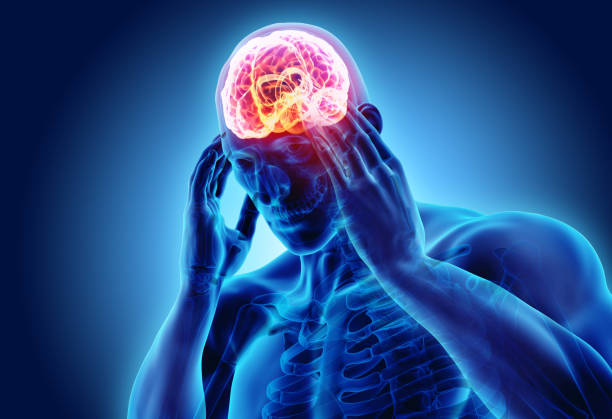TMJ and Headaches: Symptoms, Causes, and Relief Tips
Worldwide, over one-third of the world's population suffers from temporomandibular joint (TMJ) disorders that may cause them significant discomfort. Alongside this news, the Journal of Clinical Medicine reported that over a quarter of U.S. citizens felt this, a statistically significant percentage of the population. Were you aware, however, that there is a strong link between TMJ and headaches and that possible solutions exist to help you avoid such facial discomfort?
Read on to learn more about disorders, including:
- What causes TMJ issues
- What symptoms may point to TMJ problems
- What non-surgical remedies are available
- How to use natural remedies to manage the pain
Discover your options and improve your quality of life by targeting the TMJ symptoms and causes of TMJ discomfort. Get the relaxed night's sleep you deserve.
What is TMJ and How Can It Affect You?
The TMJ is a hinge that connects your jaw to your skill, allowing you to raise and lower your jaw, which is helpful for things like:
- Talking
- Biting and chewing
- Yawning
- Making expressions
- Dentist appointments
Disorders in these areas can impact the joint and several surrounding muscles. The discomfort may not always be directly in that area, either, and may radiate out to the surrounding tissues and cause headaches.
The reasons for TMJ discomfort can be various. There isn't only one trigger, so it is not always easy to pin down. You may begin to suffer due to such problems as:
- Jaw misalignment
- Dislocation of the joint
- Arthritis that causes discomfort
- Trauma impacting the joint
Over time, this discomfort can cause significant issues for the sufferer and may even impact daily activities.Not only might it affect a person's ability to perform direct action involving the jaw, but the general discomfort that radiates out may be too distracting for the person to enjoy other activities.
Understanding the Link Between TMJ and Headaches
As the jaw changes due to the onset of TMJ, inflammation may start radiating out from the jaw to the broader area. The effect may grow to areas around nerve connections in the skull. This acts as a jaw pain to headache connection that can quickly cause discomfort in many sufferers.
Similarly, chronic jaw tension and clenching, often caused by TMJ disorders, can put further pressure on nerves in the head. This pressure can trigger further headaches if left untreated, so it is essential to do what you can to reduce it when possible.
Some sufferers report that the feeling of TMJ discomfort is similar to that of a migraine and may often cause similar distractions or other issues. It can be distracting for a person experiencing it, and it can cause areas all over the head and face to feel uncomfortable.
In some cases, the jaw's misalignment can even stress further surrounding muscles as they need to compensate. This feeling may appear like tension or cluster headaches, further confusing a possible diagnosis.
Understanding this link and the possible ways it can make a person feel can help when it comes to choosing and leveraging effective headache relief.
Why You Should Investigate Non-Surgical Relief Options
While some doctors may promote the use of invasive procedures to reduce tension-based headaches, not all TMJ pain solutions need to come with such drastic action.
Non-surgical options are also available that can help, many of which you can leverage outside of a hospital and in your own home.As such, they are also more accessible when it comes to time investment and affordability.
Dietary Adjustments
Your jaw will likely need some time to recover from the damage it has already faced. In the short term, reduce the amount of hard or chewy food you eat to reduce the stress on your jaw and help prevent further aggravating any existing TMJ problem symptoms.
It may also be that you eat or drink a lot of things that cause your jaw to tense up. Some of the more common examples are those that give you sudden bursts of energy, such as sugar or caffeine. Try limiting these, at least temporarily, until your body has had a chance to catch up.
When choosing foods to eat, consider those with anti-inflammatory nutrients, such as vitamin B2 or alpha-lipoic acids.These can drastically reduce the swelling that may cause significant pain around the head and prevent other issues. Also, stay well-hydrated to ensure the body has enough water to work at peak efficiency.
From a logistical point of view, you may also want to eat more frequent, smaller meals throughout the day. This eating technique will reduce the amount of chewing you need to perform in a short period, allowing you to take breaks as you eat throughout the day.


